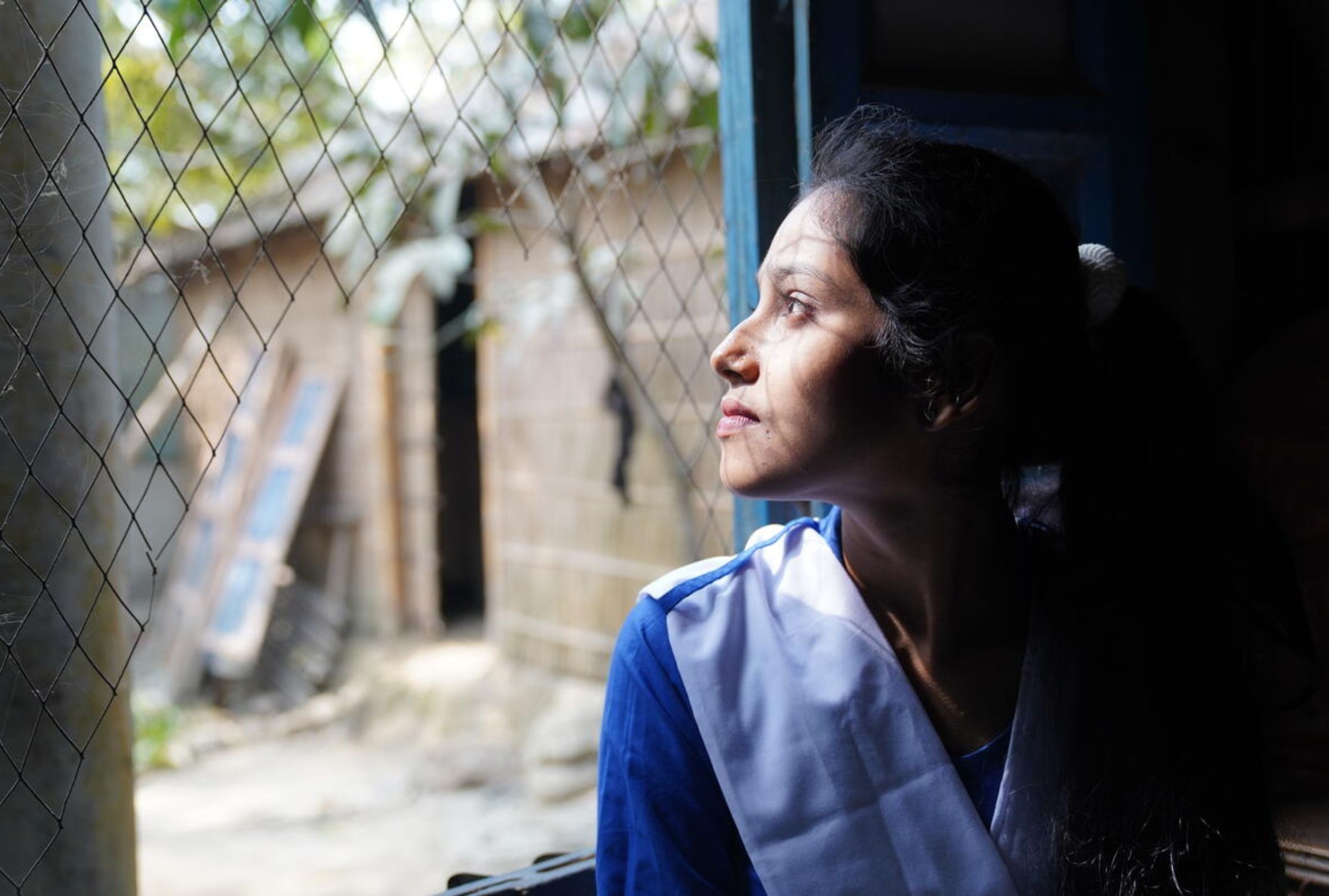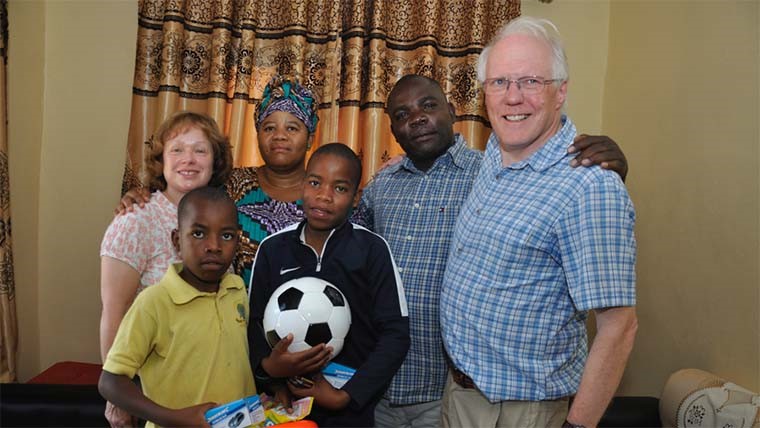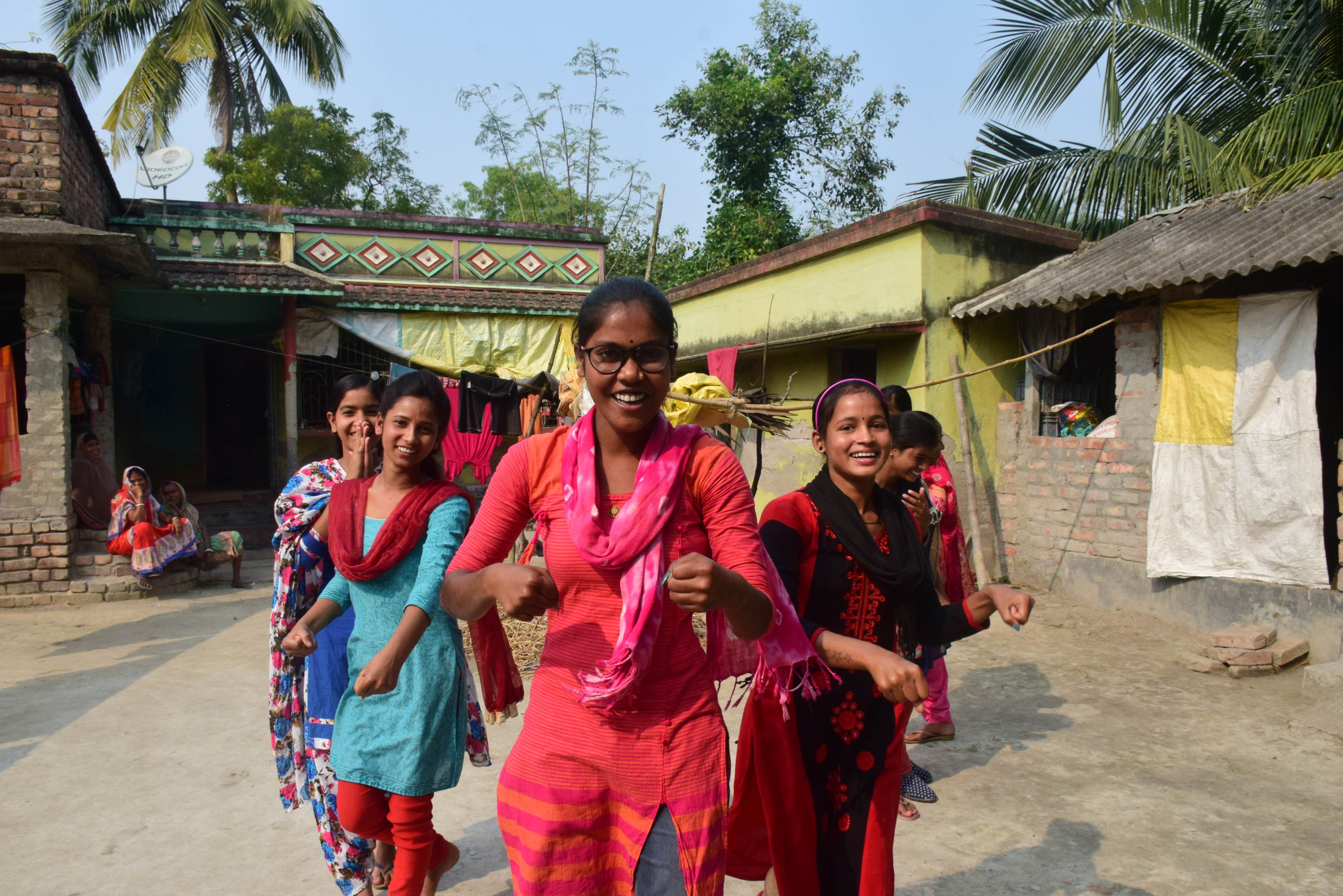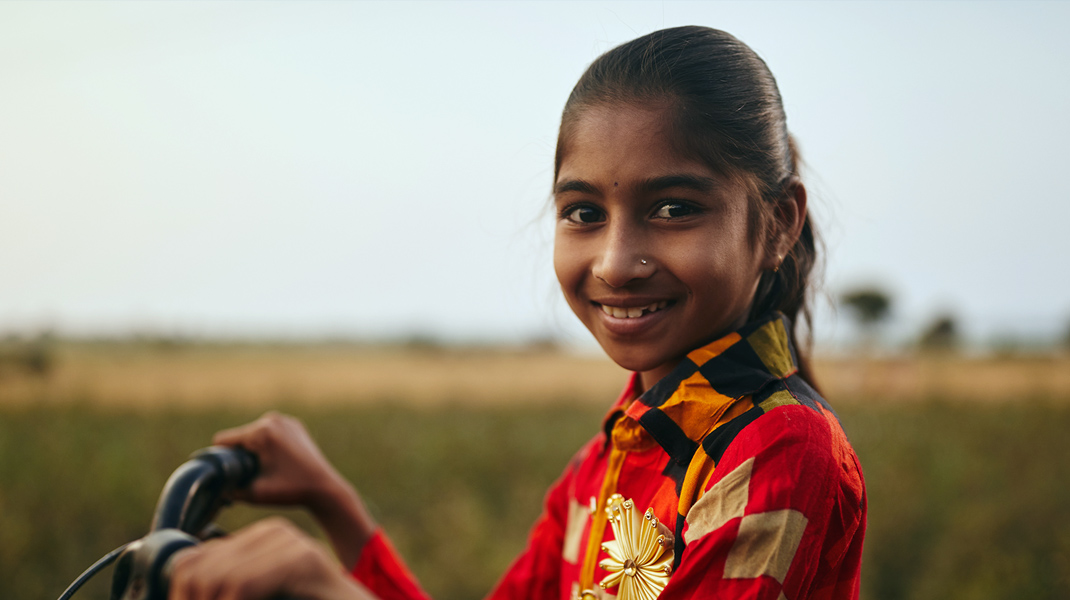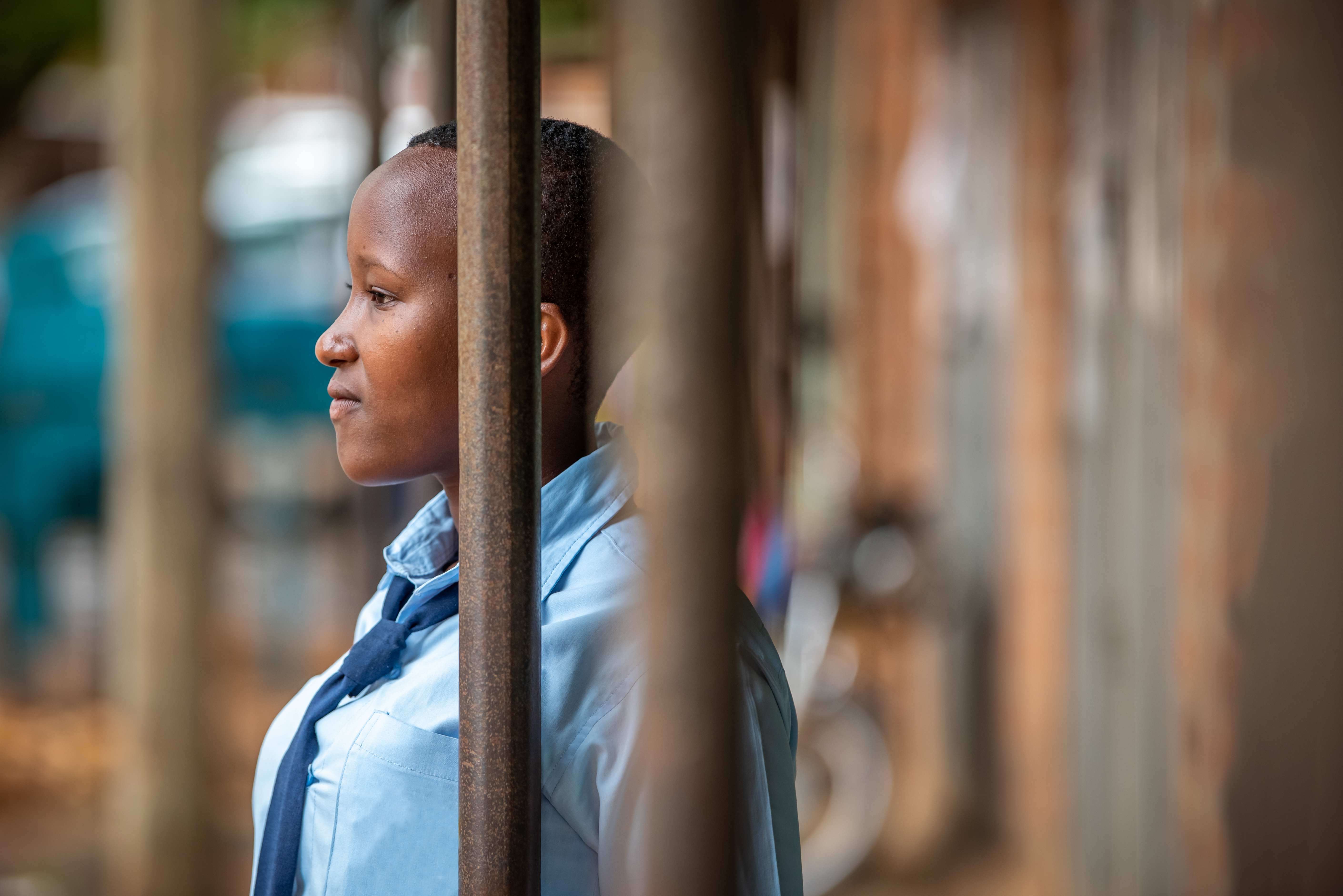
Escaping child marriage
Empowered girls building their own futures
No romance for Janet & Juliet
Millions of girls live in daily fear that they’ll be forced to do something they don’t want to do; taken out of school and forced into an early marriage.
For Janet, it wasn’t a far-fetched concern – one in every three girls in her country, Uganda, are married before their eighteenth birthday.
Janet’s fears almost became a reality
One day when she was just 15, Janet’s father left her at her aunt’s house. Janet didn’t know why. Then her cousin told her: she was going to be married.
“My father never wanted me to continue with school after completing Year Six,” says Janet. “I think because he never went to school, he also didn’t want me to go to school. He said that he did not have money for me to continue with school, and the only option I had was to get married and have a home.”
Janet wanted to be a doctor, not a child bride. She had already seen what early marriage could do – because her father had forced her sisters to marry early too.
“My father always complained about having all of us in school at the same time,” says Janet. “I remember when my sister had just completed Year Seven, our father forced her to get married. Because she was still young, her marriage did not work out, and she came back home after a few months. But because the situation at home was not good at all, my second born sister also got married.”

Fighting for her freedom
Because, through Child Sponsorship, World Vision is working with Janet’s community, she knew what to do to take back her future. World Vision sponsors support children in the community to run their own child parliament, which meets every Wednesday to discuss their rights: the right to worship, the right to education, the right to play and the right to just be a child.
As the chairperson of her school’s child parliament, Janet knows her rights and knew exactly what to do.
She called her mother, who is no longer married to her father. She understood that Janet was in danger, because sponsors also support work to make sure parents know the damage that child marriage does to girls and communities, and how important it is to protect their daughters from it. Janet’s mother sent her money for a motorbike to come back home, and Janet escaped.
It takes a village
Because child sponsors support the community to take a stand against child marriage as well, Janet and her mother had people to turn to for help. Janet told her teacher, Patrick, about her father’s plans.
“Janet came to school and informed me about how they were going to marry her off,” says Patrick. “She didn’t want it. She came crying and she didn’t want to go back home.”
Patrick is a member of the local Citizen Voice and Action Group, so he knew what to do to help young girls fight for their freedom.
When her father refused to take responsibility for her, a local nurse agreed to take Janet in.
“[She] stayed there for one year. When it was time for exams, she passed,” Patrick explains.

Why does child marriage happen?
Poverty is often a driving force for families to marry off their daughters at a young age, and Janet’s father, a farmer, struggles to make ends meet.
Now more than ever, marriage feels like the only option for many girls since the COVID-19 pandemic forced schools to shut for more than a year at the same time as many families fell into an abyss of poverty. The hard reality of struggling to find food for each day has evaporated many girls’ dreams of finishing their education – and getting married seems like the way to a better life.
At the same time, many parents encourage their teenage daughters to leave school and marry because of the common practice of dowry payments, which the groom traditionally pays the girl’s family in exchange for their wife.
But child protection experts in Uganda say the driving force behind child marriage often runs even deeper.
“It happens often because they don’t feel loved and supported at home,” says Margaret Ayebazibwe, a World Vision child protection officer in Uganda. "Instead, they look to a man to love and support them. School girls envy their married peers who get lots of attention as well as gifts, new clothes, and often babies.”

Juliet’s story
Juliet’s parents were out of town when a neighbour in her village in rural Uganda talked her into marrying a man she barely knew, who was 10 years older.
“I thought that with him life would be good,” she says. “The neighbour convinced me that the family was rich and that he would provide clothes, food — everything — for me. And I thought, ‘I can take care of him.’”
But as soon as the wedding was over, Juliet’s new husband took her to live in another district, separating her from her family who had no idea where she was. Suddenly, she was isolated and alone.
Heartbreakingly, Juliet's situation is not unique. A third of Ugandan women are married as children. In Juliet’s hometown, girls as young as 12 drop out of school to get married.
In Uganda, school dropout rates among girls are much higher than boys, with marriage, pregnancy and financial constraints the most common reasons girls give for leaving.
When Juliet realised the trap she’d fallen into, she didn’t know what to do. “I like school very much, so I was sad,” she says. “I insisted that I wanted to go back home. I didn’t want to be married anymore.”
Community acts quickly to rescue Juliet
Though Juliet didn’t know it, people in her community were already looking for her; working together to bring her home.
Leading the effort was Juliet’s father, Claver, a member of World Vision’s community child wellbeing committee. Thanks to his training, when he realised his daughter was missing, he knew what to do.
“We were trained on child protection by World Vision, including how to end a child marriage,” he says. “We may be poor here, but my daughter was not going to find a better life there. Without education, she would end up poorer and unable to afford the basics.”
Claver worked with the child protection committee and Juliet’s friends to find out the man’s name and track down their location. He then filed a case with the police.
Together they located his daughter and were able to annul the marriage.
“When they came to get me, I realised how much people care for and love me,” says Juliet, smiling through tears.
Since Juliet’s rescue, along with other members of their community child protection committee, Claver is working to make sure everyone in the community understands the damage that child marriage does to girls’ health and future.

Juliet today
Juliet is now back at school, though the family still struggles to afford it, and during the rainy season Juliet sometimes has to work with her parents. But she also has a child sponsor now, who gives her the help and encouragement she needs to remain committed to her studies.
“A lot of people encouraged me to go back to school,” says Juliet. “It gives me courage. If I’m educated, I can help my family. I want to achieve because these people see me as a champion.”
For a girl like Juliet, the chance to stay in school can determine a path for the rest of her life. Education provides the tools not just to change her future, but also the future of her community.
“I look at the female teachers and nurses and think, ‘They were once girls like me.’ I see that they treat everyone kindly, with care and love. I want to be like that,” says Juliet.
"What I want to tell other young girls is not to just go with it because getting married seems like an easy way out or romantic. Go to school! That's the only thing that will give you opportunities in the future.”
Janet’s bright new future
And what happened to Janet? Today, she’s working hard to become a doctor. Every day, she is a little closer to achieving her dream – and Child Sponsorship is supporting her every step of the way.
As well as equipping communities like Janet’s to respond to child marriage, Child Sponsorship helps them to tackle its root causes as parents increase their income and improve their financial security, and communities address damaging social norms and attitudes that entrench gender inequality.
Teacher Patrick has high hopes for Janet’s future. “She will come and help the community,” he says. “She encourages her friends to study. She has even talked on the radio about how children should not be mistreated at home and at school. She is happy.”
Right now, thousands of girls like Janet & Juliet urgently need sponsors so they can build their own fearless future.
Join the movement to sponsor 500 girls by 11 October, International Day of the Girl.


